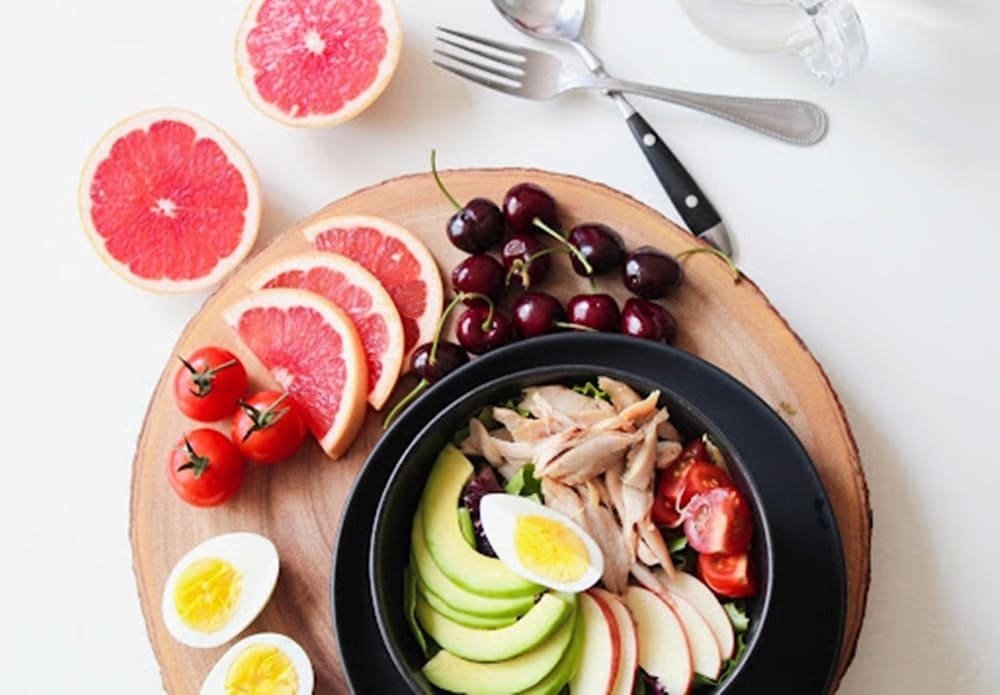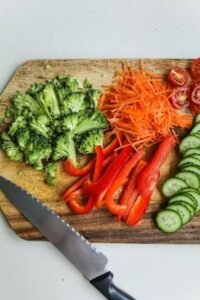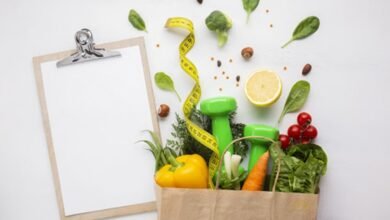
Let’s find out what the best diet for a pregnant woman should comprise.
Are you pregnant and always hungry?
Have you gained weight as a result of eating unhealthy food?
Or do you always crave sugar because it improves your mood?
There is no doubt that a proper diet for a pregnant woman ensures the healthy development of her fetus.
It also ensures that both the mother and fetus receive all the elements required without the mother gaining weight.
Principal foods in a healthy diet for a pregnant woman

A pregnant woman should eat everything that would benefit her and her fetus with a focus on certain elements and foods that are particularly good for her, such as:
Dairy products
Dairy products are one of the most important sources of protein and calcium, like cheese, yogurt, and milk.
They also contain magnesium, zinc, B vitamins, and phosphorus.
It is worth noting that Greek yogurt contains more calcium than other dairy products.
Legumes
Legumes are rich sources of fiber, protein, iron, calcium and folic acid, and many elements the body needs during pregnancy.
They include beans, peas, lentils, chickpeas, peanuts, and soybeans.
Folic acid is also one of the chief elements needed in the first months of pregnancy.
A pregnant woman needs about 600 micrograms per day.
Pregnant women can derive a large part of their folic needs from food, especially legumes.
It protects the fetus from developing a neural tube defect, which is responsible for the formation of the spine and brain.
However, this does not preclude the need to include folic acid supplements in a diet for a pregnant woman according to the doctor’s prescription to ensure that she receives the necessary amount for her fetus.
Sweet potatoes
Not only are sweet potatoes a delicious meal, but they are also a rich source of beta-carotene, which the body turns into vitamin A needed for the health of the fetus.
Furthermore, sweet potatoes contain a high percentage of fiber, which contributes to improving the functions of the digestive system and getting rid of constipation.
Salmon
Salmon and sardines contain omega-3, which is necessary for developing the fetus’s brain, eyes, and digestive system.
However, a balanced diet for a pregnant woman shouldn’t contain too much fish because it contains toxic mercury.
It is possible to eat it twice a week at most.
Examples of fish high in mercury include; mackerel, shark, and swordfish.
Eggs
They are a valuable source of nutrition as they contain all the elements and vitamins that a pregnant woman needs.
Eggs are also a source of choline, which protects the fetus’s brain and spinal cord from many abnormalities.
One egg contains 147 milligrams of choline, while pregnant women need about 450 milligrams of it per day.
Broccoli and dark green leaves
Broccoli and green leafy vegetables such as spinach owe their importance to the fact that they are rich in fiber and vitamins, such as:
- Iron.
- Vitamin K.
- Vitamin C.
- Calcium.
- Potassium.
- Vitamin A.
- Folate.
These vegetables help protect against constipation because they contain a high percentage of fiber.
They can also be added to eggs or mixed with a smoothie drink for people who do not enjoy their taste.
Protein and red meat
Low-fat red meat is a principal source of iron.
It is an essential component in a healthy diet for a pregnant woman and is responsible for the formation of red blood cells.
Iron deficiency during pregnancy leads to anemia, which may cause low birth weight, bleeding, and other problems.
It is hard to rely solely on proteins as a source of iron, and we often use an iron-containing supplement after consulting a doctor.
Whole grains
They contain fiber and vitamins that a pregnant woman needs, such as B vitamins, magnesium, and protein.
Whole grains like oats, barley, quinoa, and brown rice can substitute white bread and pasta.
Dried fruits
Like fresh fruits, dried fruits contain multiple vitamins and fiber.
They are also high in calories.
Eating one of the dried fruits provides the necessary vitamins and elements the body requires.
However, caution should be exercised, because of its high-calorie content, especially when planning a diet for a pregnant woman with diabetes.
Hence, take a small amount throughout the day to avoid increased blood sugar.
Dried plums also help relieve constipation because they contain fiber, potassium, and vitamin K.
Additionally, dried dates contain iron, potassium, and fiber, but they are also high in sugar, so must be eaten in small amounts.
Cod liver oil
Cod liver oil is a rich source of both omega-3 and vitamin D.
These are involved in the development of the fetus’s brain and eyes.
It is also a source for those who do not prefer eating fish, as taking one tablespoon of cod liver oil meets the daily requirement of vitamin D, omega-3, and vitamin A.
Preferably, not to take more than one spoon per day to avoid affecting blood fluidity.
It is important to note that excess vitamin A may be dangerous to the fetus.
Forbidden foods in a healthy diet for a pregnant woman
When it comes to a pregnant woman’s diet, it is preferable to rely on fresh, healthy food and avoid certain foods.
Foods not recommended in a healthy diet for a pregnant woman include:
- Preserved and canned food.
- Unpasteurized dairy products, or those from an unknown source, to avoid infection with bacteria.
- Canned and smoked fish.
- Undercooked meat.
Important daily tips in a healthy diet for a pregnant woman
A pregnant woman planning her diet should design a diet chart to ensure committing to eating the principal foods that provide her with the daily needs.
Try to adhere to eating and drinking the following:
- Five fresh fruits and vegetables a day, including one dark orange fruit, two dark leafy greens, and one citrus fruit.
- Six servings of whole grains throughout the day and three servings of low-fat dairy products.
- Two to three servings of meat, chicken, fish, or legumes daily.
- Eight glasses of water to avoid dehydration, urinary tract infections and relieve constipation. (The most common problems faced by pregnant women).
- Avoid caffeine in tea, coffee, and soft drinks.
The importance of diversifying and dividing meals in a pregnant woman diet chart
Diversifying meals is crucial to get all the necessary elements and vitamins that the body needs.
The mother’s need for healthy nutrition increases during pregnancy for the optimal growth of her fetus.
Eating several small healthy meals also provides a feeling of satiety and reduces appetite.
The mother can eat the principal meal at the end of the day during the first three months to reduce nausea during the day.
It is preferable to eat the principal meal in the morning during the last three months to reduce the acidity associated with that period.
In conclusion, meal diversity is crucial in planning a balanced diet for a pregnant woman.
Additionally, she should eat foods rich in vitamins and essential elements for the healthy growth of her fetus.
Also, remember to drink plenty of water, to prevent dehydration and protect against urinary tract infections.

